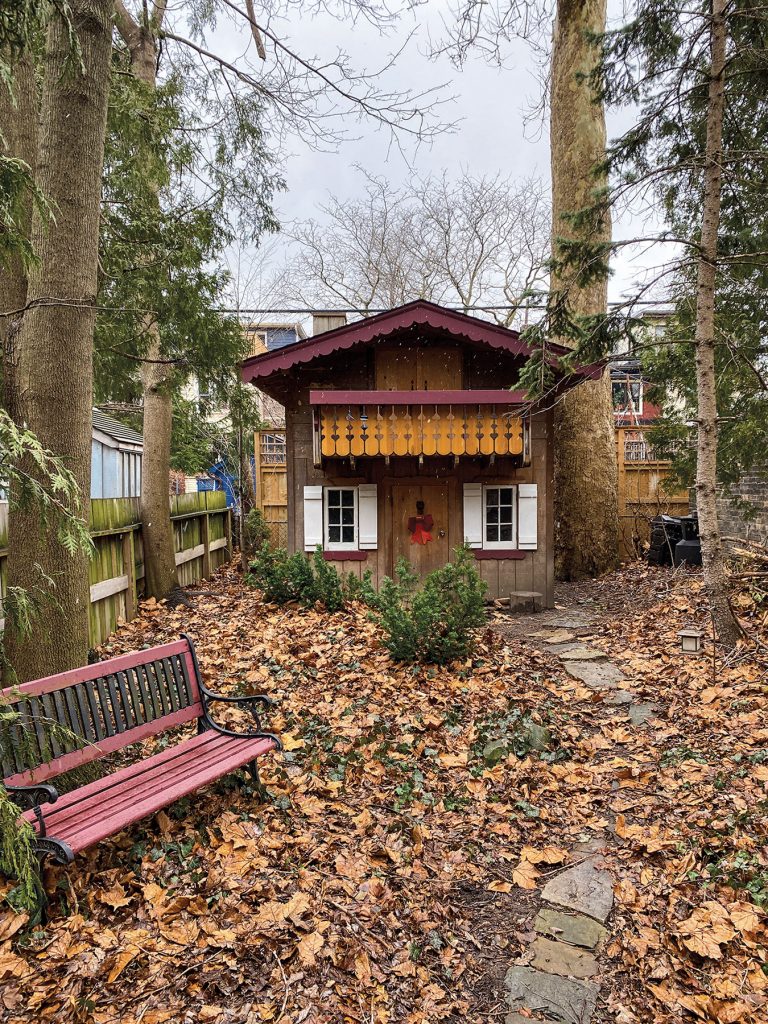Amendments to bylaw increase density in established neighbourhoods

By Joshua Snow
The City of Toronto has been talking about garden suites for years, and on Feb. 2, council agreed to a policy that allows homeowners to build a detached suite in their backyards.
Approval of the garden suites bylaw falls under the city’s Expanding Housing Options in Neighbourhoods initiative. Garden suites increase Toronto’s housing options, as they can be used as rental units.
Like laneway houses, garden suites are detached units, but they do not have to be built on a laneway, which means they provide more flexibility for homeowners. The main house provides connections for all the utilities.
However, not all houses with backyards will be eligible, because the suites cannot cover more than 40 per cent of the backyard. This requirement ensures that emergency services can easily access the unit.
Since the population of Toronto is expected to reach 3.5 million by 2030, garden suites can help address the lack of affordable housing in the city.
Initially, council members only considered garden suites to be a form of rental housing; however, they can also provide housing for family members.
In a press release, Mayor John Tory said that the “garden suites regulations approved today represent a ‘Made In Toronto’ solution with sensible regulations to protect neighbours, trees/green space and create options for multigenerational housing through ‘gentle density.’”
Amid the senior long-term care crisis this is a topic of interest among many people in Toronto.
In an interview, Councillor Mike Layton (Ward 11, University-Rosedale) explained that he supports garden suites because “multigenerational households help families who don’t want to put their parents in long-term care and gives people options. ”
But the construction of these housing units won’t be cheap. Layton estimates that each unit will cost around $400,000 to build. For a secondary house, this price could be too high for many Torontonians.
If renting the unit is an option then “it may be worth it down the line,” said Layton.
However, not everyone supports the garden suites bylaw. Following its approval, a group of homeowners launched an appeal because they feel that their privacy may be affected by this new policy.
In an email to the Gleaner, the chair of the Annex Residents’ Association (ARA), Rita Bilerman wrote that, “garden suites won’t impact our neighbourhood…they will not add much to housing supply or to housing affordability in our city.”
But Councillor Mike Layton suggests that “if it benefits them, why not let them build it?”
Garden suite vs. Laneway house
On Feb. 22, Toronto city council expanded permissions to allow the construction of garden suites on residential properties. A garden suite is a separate and detached housing unit on an existing residential property, which does not directly face a street or alley. As this area is typically where a garden would be, these housing units are referred to as garden suites.
Laneway houses have been legal since June 28, 2018, and may seem quite similar to garden suites; however, there is one key difference. A laneway house is built on a piece of land that has been severed from the original property. The original property faces the street, while the severed property faces the laneway. A garden suite, however, is not built on a severed property; the main building and the garden suite are on the same piece of land, and the main house provides the utilities for the garden suite.
Garden suites provide homeowners with a new option to support renters, without having to deal with the headache and hefty price of severing their property, or alienating their ownership of land. To minimize the initial cost and risk of investing in a second building, the city has offered a forgivable loan of up to $50,000 for eligible homeowners who rent their garden suite. While there is no minimum lot size for a garden suite, the building must not cover more than 40 per cent of the backyard. Also, the suite must be within 45 metres of the street, with a path of at least one metre wide and 2.1 metres tall to provide emergency services access to the property.
—Fox Oliver/Gleaner News
READ MORE:
- NEWS: City moves forward with Garden Suites (May 2021)
- NEWS: Alleyway on the cutting edge (Feb. 2021)
- NEWS: U of T’s unique laneway homes (Aug. 2020)
- ON THE COVER: Laneway lit up (October 2018)
- CHATTER: U of T proposes laneway housing pilot on Huron Street(Spring 2018)
- ON THE COVER (JANUARY 2017): Putting the city’s laneways to work
- NEWS (JANUARY 2017): Laneway living
- NEWS (OCTOBER 2016): Preventing a wall of towers

1 response so far ↓
1 Tony // Apr 20, 2022 at 11:21 am
Please note that Laneway Suites are also non-severable. They are identical to garden suites in that they share services and a property with a primary street facing dwelling. This should be clarified and updated.